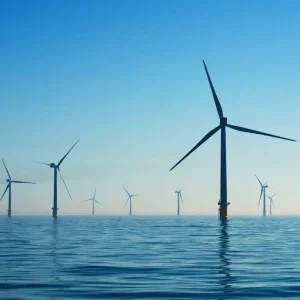The Electricity Control Room at the UK’s National Grid has announced that Friday 21 April was the first day without coal fired generation in Britain since the Industrial Revolution. It was the first continuous 24 hour period without coal. Britain's previous longest continuous energy period without coal was 19 hours, first achieved in May 2016.
The UK government plans to phase out Britain's last plants by 2025 in order to cut carbon emissions. Cordi O'Hara, of the National Grid, described 21 April as ‘a watershed moment in how our energy system is changing’. She added: ‘The UK benefits from highly diverse and flexible sources of electricity. Our energy mix continues to change and National Grid adapts system operation to embrace these changes.’ But Ms O'Hara says that while the country makes the transition to a low carbon system, coal remains an important source of energy.
According to Gridwatch.co.uk, around half of British energy on Friday came from natural gas, with about a quarter coming from nuclear plants. Most of the rest came from wind, biomass, and imported energy.
Friday's landmark moment is a sign of how the once mighty fuel, which earned the epithet ‘king coal’, is being consigned to history. Part of the reason is that solar panels and wind turbines now provide much more electricity to factories and homes. Lower power demand is a factor too – normal for a Friday. And as older, uneconomic coal fired plants have closed in recent years, the fossil fuel has been playing a lesser role in the UK’s energy system.
The last deep coal mine in the UK closed in December 2015, bringing to an end centuries of deep coal mining in Britain. It accounted for just 9% of electricity generation in 2016 – down from 23% the year before.
Hannah Martin, head of Energy at Greenpeace UK, commented: ‘The first day without coal in Britain since the Industrial Revolution marks a watershed in the energy transition. A decade ago, a day without coal would have been unimaginable, and in ten years' time our energy system will have radically transformed again.
‘The direction of travel is that both in the UK and globally we are already moving towards a low carbon economy. It is a clear message to any new government that they should prioritise making the UK a world leader in clean, green, technology. They will need to get on with the coal phase-out plan and recognise the economic potential of renewable energy and energy efficiency. We can meet the UK's needs for skilled jobs and fair bills, whilst also meeting our climate targets.’






